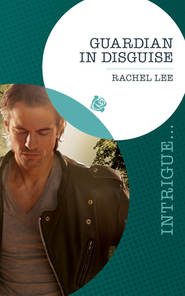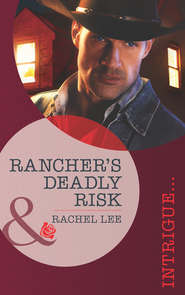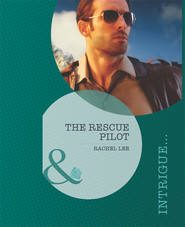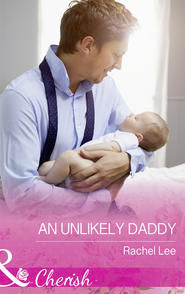По всем вопросам обращайтесь на: info@litportal.ru
(©) 2003-2025.
✖
The Unexpected Hero
Автор
Год написания книги
2018
Настройки чтения
Размер шрифта
Высота строк
Поля
“You should be catching a nap then.”
“I couldn’t sleep right now.”
She looked down at her coffee, then across at him again. “I would have thought you’d have learned to sleep anytime, anywhere.”
“Because of being military?” He shrugged. “That used to be easier. You might not understand this yet, I don’t know. But the losses are harder now. Maybe because the patients aren’t usually in such a bad state.”
Krissie nodded slowly. “I guess I can see that.”
“Maybe you won’t feel that way. I hope not.”
“Too early to tell. So what’s your background?”
He sipped his coffee as if buying time to consider what he should say.
“Oh, come on,” she prodded. “You read my jacket. Fair’s fair.”
At that, he smiled. “Okay. I enlisted at eighteen, became a medic in time for Desert Storm. Bad enough, but I was still on fire with the desire to be able to do more to help, so eventually I went to college, got admitted to medical school. The army picked up the tab on my medical training in return for a six-year commitment. It was mostly okay. Until Iraq.”
“Yeah.”
“Same for you?”
She shook her head, biting her upper lip. “Not quite. I went to nursing school on scholarship and enlisted after I got my B.S. in nursing. The navy trained me to be a nurse practitioner, and the next thing I knew, I was in Asia on the USS Hope after the tsunami.”
“My God, that must have been awful.”
“Not my favorite memory. But after that, I was attached to the Marine Corps and served in Iraq.”
“In the field,” he said as if it weren’t a question.
“In the field,” she agreed. “Well, at bases with field hospitals.”
“Yeah, the ones they pretend aren’t at the front line.”
She lifted her gaze and saw understanding there. A wealth of understanding. “There is no front line.”
He nodded. “Exactly.”
Mabel returned and slapped their plates down in front of them. Krissie stared at hers, certain there had to be more than two eggs in that omelet. Plus there were hash browns she hadn’t asked for and four slices of rye toast.
David must have read her expression. He laughed. “I think Maude thinks you’re too thin.”
“Maude thinks everyone is too thin.”
Krissie glanced toward the window and caught sight of her reflection. She was a little under her fighting weight, and worse, she suddenly realized that the blond streaks in her light brown hair were growing out to the point that they no longer looked good. She experienced a moment of self-consciousness, then quickly dismissed it. She’d only applied those streaks because Alvin had insisted on it. He’d wanted her to go completely blond, but at least she’d managed to draw that line. Of course, with Al, it was his way or the highway. It had taken a while, but she’d finally chosen the highway.
Whatever had possessed her to stay for so long?
“Penny for your thoughts?”
David’s voice drew her back, and she looked at him. “Nothing,” she said. “Just a memory.”
“And thoughts are worth a lot more than a penny these days.”
David could be charming, she realized. That concerned her as much as their initial encounter. Control and charm had gone hand-in-hand with Alvin. Just like that, she went on high alert.
“What’s wrong?” David asked.
Perceptive, too. “Nothing,” she said firmly and turned her attention to her overburdened plate. Just the sight of all that food made her feel full, but she hadn’t eaten a bite. And since she hadn’t eaten her lunch during her break, she knew she was going to have to tuck in or get sick later.
She picked up a slice of toast, already buttered by the prodigious purveyor of fatty food herself, Maude, and took a bite. At least her stomach didn’t revolt. In fact, once the toast reached bottom, she began to feel hungry. A sip of coffee took care of the last of her revulsion.
David tucked in, too, and for a while, they ate in silence.
The tragic mood of the night began to give way to life. One of the hardest and fastest lessons medical people had to learn was that life went on even when someone died. That they weren’t God, and sometimes had to just let go. Clinging to their losses only made them less capable of caring for the next patient.
But neither could they afford to grow hard. No, they just had to quick-time their way through the sense of failure and loss to be ready for the next case.
David spoke. “So you worked in the VA hospital in Denver, right?”
She tensed immediately. “Yes. I did.”
He looked at her. “Bad topic?”
She half shrugged. “Well, it was emotionally tough. Easier in some ways than Iraq, harder in others.”
“I would think so. At one end, you’re focused on saving a life. At the other, you’re looking at the destruction left in the wake of it.”
“You can never do enough. And the vast majority of the patients I had were amazingly positive, considering what they faced. Oh, they got angry at times, and depressed, but by and large, they handled it better than I did.”
“How so?”
She hesitated. “Well…sometimes I found myself furious. Because we saved them for this? A life without limbs, a life with brain damage, a life of paralysis? And every time it started to overwhelm me, some patient would say he was glad he’d made it.” She shook her head and closed her eyes for a minute. “Sorry.”
“No, I’m sorry. I shouldn’t have brought it up. The whole point of dragging you here for breakfast was to get some calories into the two of us and shuck what happened so we can get on with what comes next.” He looked rueful. “So, idiot that I am, I stick my foot right in it.”
She had to smile, and made a major effort to shake off the memories. “I guess we all get our scars.”
“So your dad used to be sheriff here?”
She almost laughed at the pointed change of subject. “Yeah. Forever, it seems. Certainly since before I was born. Deep roots in these parts.”
“I haven’t really had a chance to get to know him yet.”
“You will. Retired or not, this county belongs to Dad.” She grinned. “Or so he thinks. He’s keeping his hand in, one way or another. Small ways. It must be driving Gage nuts.”
“Gage? You mean the new sheriff, Gage Dalton?”











